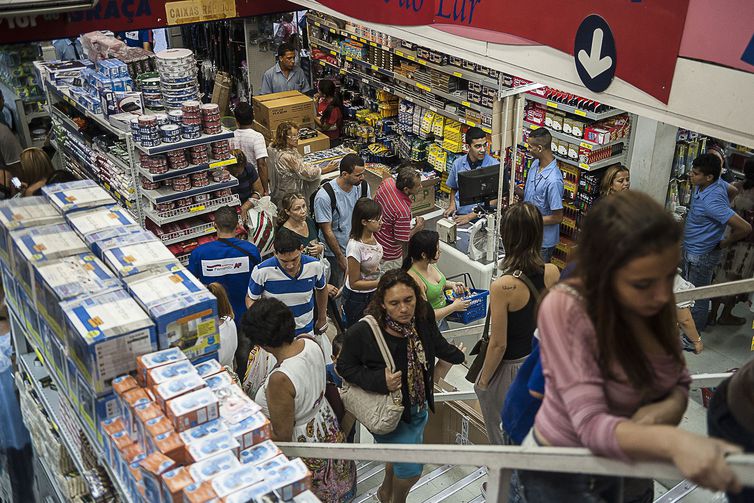Rio de Janeiro – The official Brazilian inflation rate, measured by the Extended National Consumer Price (IPCA), ended 2018 in 3.75%. In 2017, it stood at 2.95%. The information was released this Friday (11) by the Brazilian Institute of Geography and Statistics (IBGE). Inflation stood within the target established by the Central Bank for 2018, which ranged between 3% and 6%.
In December, IPCA registered a 0.15% inflation, a rate higher than in November, when there was a 0.21% deflation. In December 2017, the index had registered a 0.44% inflation.
The primary reason for the 3.75% inflation in 2018 was the increased cost of foods, whose prices raised 4.04%. In 2017, the food and beverage group registered a price drop of 1.87%. The result was influenced by the truckers strike in May, which provoked supply shortages in food items and an increase in these products prices.
“This [truckers] strike occurred in May, so it had a one-off impact in June on fuels and also on foods because of the shortages in supply. [If the strike had not happened], this would probably imply a lower inflation rate in the accumulated rate of the year,” said the IBGE researcher Fernando Gonçalvez.
Food consumed at home became 4.53% more expensive over the year, while the price of food consumed away from home (in bars and restaurants for example) rose 3.17%. Food products that had a bigger impact on the inflation in 2018 were tomato (71.76% more expensive), fruits (14.1%), meals away from home (2.38%), snacks away from home (4.35%), UHT milk (8.43%) and roll (6.46%).
Other expenses
Other groups of expenses largely impacting the inflation last year were housing (4.72%) and transportation (4.19%). Among the transportation items that became more expensive are air tickets (16.92%), gas (7.24%) and city bus (6.32%). Among expenses with housing, the main impact on the increase in living costs was the power bill (8.7%).
Among the nine group of expenses researched, only communication had a deflation (-0.09%). The other groups had the following price increase rates: house items (3.74%), health and self-care (3.95%), education (5.32%), personal expenses (2.98%), and clothing (0.61%).
December
In December, IPCA registered a 0.15% inflation. Over the month, food was also the main responsible for the the increased prices, with a 0.44% change. On the other hand, transports and house expenses avoided an increase higher than the IPCA in the month, having a 0.54% and a 0.15 deflation, respectively.
Capitals
Among the metropolitan regions and capitals researched by IBGE, Porto Alegre was the one that accumulated a higher inflation in 2018 (4.62%), followed by Rio de Janeiro (4.3%), Vitória (4.19%), Salvador (4.04%) and Belo Horizonte (4%), all above the country average. The smallest inflation rates were seen in Aracaju (2.64%), São Luís (2.65%), Recife (2.84%), Fortaleza (2.9%) and Campo Grande (2.98%).
Translated by Guilherme Miranda




